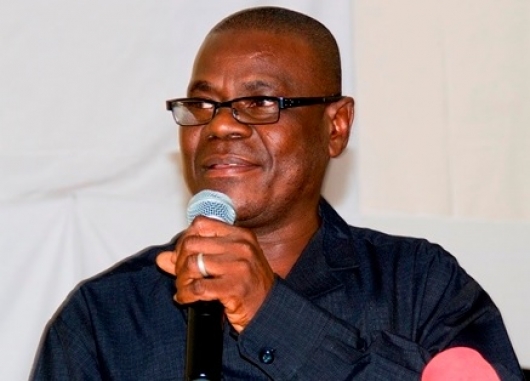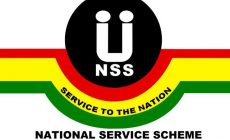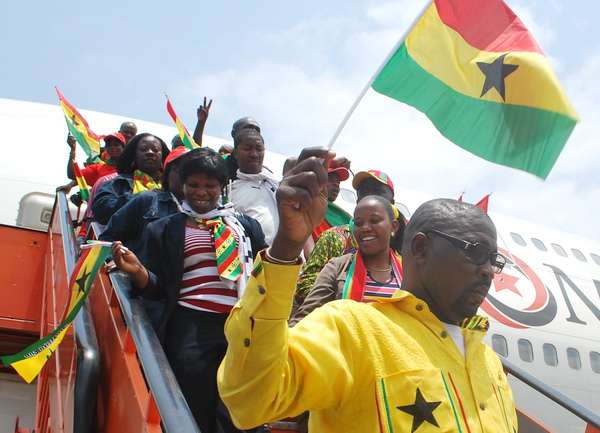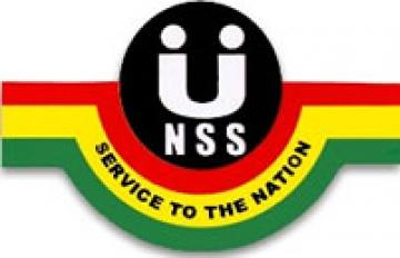It also emerged that some high-ranking officials of the NSS paid GH¢200,000 to BNI investigators to conceal the rot.
The GH¢200,000, other items and the list of officials who paid the money are currently in the possession of the BNI.
A highly placed source who disclosed this to the Daily Graphic in an interview in Accra yesterday said other items doled out to BNI investigators as bribes were smocks, tubers of yam, laptops and goats.
“Investigations revealed thousands of ghost names in all payment vouchers across the country. Though investigations have not been concluded, about 22,612 ghost names have so far been unearthed,” the source that declined to be named said.
It said at the current monthly allowance of GH¢350 per a service person, that meant that at least GH¢7,914,200 was lost to the state every month.
“Annually, about GH¢94,970,400 in undeserved allowances is lost to the state. The number of ghost names is expected to increase when the exercise is completed,” it said.
Arrests
As of the time of going to press, 20 District Directors of the NSS had been picked up for their alleged roles in the malfeasance.
Widespread rot
According to the source, investigators discovered that district directors of the scheme were the sole signatories to the accounts opened in the name of the NSS at the district level.
It said it was also established that National Service directors in the districts and most managers of banks where NSS allowances were lodged “worked closely together in these dubious payments”.
According to the source, the BNI, following reports of massive malfeasance in the postings and the payment of the allowances to National Service personnel, embarked on preliminary investigations in selected districts and discovered that the rot was “pervasive and deep-rooted in all the selected districts”.
“Based on the revelation, the BNI commissioned a nationwide investigation into the operations of the National Service Scheme from July 20, 2014,” the source noted.
HQ generated ghost names
The source said it came up during investigations that the ghost names which were available in all the district secretariats of the NSS were generated at the headquarters of the NSS in Accra.
It also emerged that the ‘ghost’ service persons were mostly posted to rural areas and, in some cases, non-existent institutions and departments.
“After payments to genuine service personnel, the allowances of the ‘ghosts’ are withdrawn in bulk and shared among district, regional and national officers of the NSS.
“The ghost names are distributed by the NSS Headquarters to its regional directors, who also distribute them to the district national service directors (DNSD),” the source said.
Startling findings
It said in the course of the exercise, startling findings were made and some DNSDs broke down and confessed that the ghost names existed but that they had been supplied to them from the NSS headquarters in Accra through their regional directors.
During the investigations, it came up that the number of ghost names allocated to a region or district depended on the trust and loyalty reposed in the receiving officers.
“Regional and district directors perceived to be loyal to the NSS headquarters were allocated more ghost names,” the source disclosed.
Method of operation
It was gathered during the investigations that the NSS, every January, sent letters to all tertiary institutions to submit the names of all final-year students to it, so that it could plan and undertake effective posting of students later in the year.
According to the source, after all prospective service personnel had been registered, a list of final-year students who did not register to do National Service because they had either done their service or travelled abroad was compiled by the NSS and identification numbers generated for them.
It said the affected persons who never registered or reported for duty were not aware that they had been posted to do service or were being paid for the benefit of others.
Rural posting
The source said in order to make it difficult for the scam to be detected, the ‘ghosts’ were usually posted to remote rural communities and, in some cases, non-existent institutions.
“Classic examples are to be found in the Kwahu North and the Gonja North districts where ‘ghosts’ were posted to inaccessible areas.
“Most heads of schools in the rural areas where service persons were purportedly posted to disclosed that for over three years no service persons had been posted there,” it added.
Forged signatures
“For a period of 12 months, each National Service person on the ghost payment voucher had a different signature every month. It was as if to suggest that each service person had no specific consistent signature,” it said, adding that signatures were also forged on payment vouchers for the 22,612 ghost names.
It said a clear case was in the Ga West District where, out of the 1,449 names on the payment voucher, 779 signatures were forged.
The source said another revelation was that in July and August 2014, payment vouchers for the same Ga West District had completely different names, adding that “another investigation identified a similar fraudulent practice in the Gonja East District”.
Confessions
According to the source, most of the district directors broke down and confessed that the booty had been withdrawn in bulk after the genuine service personnel had been paid.
It said some of the directors confessed that the booty was then sent to the regional directors, who doled out 30 per cent to the district directors, while the remaining 70 per cent was shared between some regional directors and directors at the NSS headquarters.











 (Selorm) |
(Selorm) |  (Nana Kwesi)
(Nana Kwesi)